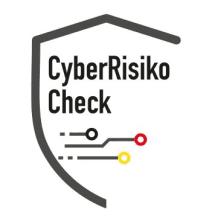What is Ethical Hacking?
Ethical Hacking, also known as penetration testing or white-hat hacking, refers to the authorized and planned attempt to infiltrate a computer system, networks, applications, or other IT systems to identify security vulnerabilities. By identifying these weaknesses, organizations can take measures to protect their infrastructure from malicious attacks.
Ethical hacking plays a crucial role in the world of cybersecurity. Ethical hackers help review and strengthen the security architectures of companies. They operate with the consent of the organizations and conduct tests that simulate real attacks to uncover weaknesses before malicious actors can exploit them.
The Role of an Ethical Hacker
An ethical hacker is essentially an IT security specialist who understands the techniques and tactics of an attacker but works with consent and in accordance with legal regulations, unlike a malicious hacker. Their goal is to discover vulnerabilities in systems before criminals can exploit them.
Ethical hackers conduct various tests, including vulnerability scans, network tests, web application tests, and social engineering tests. They document their findings and provide recommendations to enhance the security of a system.
Tools and Techniques of Ethical Hacking
There are a variety of tools that ethical hackers use to conduct their work. Some of the most commonly used tools include:
Nmap: A network scanning tool used to identify open ports and determine which network services are running on a system.
Metasploit: A penetration testing platform that provides exploits for vulnerabilities and automates the exploitation of security gaps.
Wireshark: A network protocol analyzer that enables network analysis and helps identify suspicious activities.
Burp Suite: A tool for web application assessment that supports testing for vulnerabilities and weaknesses in web applications.
Ethical hackers often follow recognized standards and methods, such as the Open Web Application Security Project (OWASP) or the Penetration Testing Execution Standard (PTES), to ensure that their tests are thorough and effective.
Benefits of Ethical Hacking for Companies
Regular penetration testing by ethical hackers offers companies numerous benefits:
Early Detection of Threats: By simulating attacks, organizations can identify potential vulnerabilities before real attacks occur.
Improvement of Security Measures: By identifying vulnerabilities, companies receive detailed recommendations to improve their existing security measures.
Protection of Sensitive Data: Ethical hacking helps protect personal data and other confidential information from data theft.
Compliance with Regulatory Requirements: Many industry standards and regulations, such as the Payment Card Industry Data Security Standard (PCI DSS), require regular security audits.
Building Trust: Companies that strive to continually improve the security of their systems gain the trust of their customers and partners.
Challenges in Ethical Hacking
Despite their importance for IT security, ethical hackers face various challenges:
Keeping up to date: The cybersecurity landscape is constantly evolving, and ethical hackers must continuously learn and update their skills to combat new threats.
Scope of Testing: Some organizations underestimate the necessary extent and frequency of tests, which can lead to inadequate security assessments.
Legal and Ethical Considerations: Despite having work permission, ethical hackers must ensure that their activities are fully compliant and that they do not inadvertently cross legal boundaries.
Conclusion
Ethical hacking is an essential element of modern cybersecurity strategies. It provides a proactive way to identify vulnerabilities and gives companies a chance to secure their networks before real attackers can strike. Given the rapidly growing threats in the digital world, it is more important than ever for organizations to take ethical hacking seriously to effectively protect their systems and data.
📌 Related Terms: Penetration Testing, White-Hat Hacker, Vulnerability Assessment
Ethical Hacking in Germany: Current Developments
The importance of ethical hacking in Germany is continuously growing. According to recent studies by the Federal Office for Information Security (BSI), German companies are increasingly affected by cyber threats. The Bitkom Association reports that 84% of German companies have become victims of cyber-attacks in the past two years.
Particularly in the field of ethical hacking, the following trends are evident:
Increased investments in preventive security measures
Heightened awareness of holistic security concepts
Integration of ethical hacking into existing compliance frameworks
EU Compliance and Ethical Hacking
With the introduction of the NIS2 Directive and tightened GDPR requirements, German companies must adjust their security strategies. Ethical hacking plays a central role in meeting regulatory requirements.
Important compliance aspects:
Documentation of security measures
Regular review and updating
Proof of effectiveness to supervisory authorities
Practical Implementation in Corporate Daily Life
Integrating ethical hacking into corporate daily life requires a structured approach. Experience shows that companies benefit from a gradual implementation that considers both technical and organizational aspects.
Think of ethical hacking like an insurance for your company: the better prepared you are, the lower the risk of damage from security incidents.
Further Security Measures
For a comprehensive security strategy, you should combine ethical hacking with other security measures:
Vulnerability Management - Systematic vulnerability management
Penetration Testing - Comprehensive security tests
Security Hardening - Employee awareness
Incident Response Plan - Preparedness for security incidents
Conclusion and Next Steps
Ethical hacking is an essential building block of modern cybersecurity. Investing in professional ethical hacking measures pays off in the long term through increased security and compliance.
Want to optimize your security strategy? Our experts are happy to advise you on implementing ethical hacking and other security measures. Contact us for a non-binding initial consultation.
🔒 Take action now: Have our experts assess your current security situation
📞 Request advice: Schedule a free initial consultation on ethical hacking
📋 Compliance Check: Review your current compliance situation
📌 Related Topics: Cybersecurity, IT Security, Compliance Management, Risk Assessment




